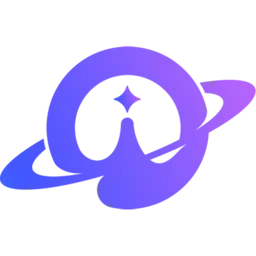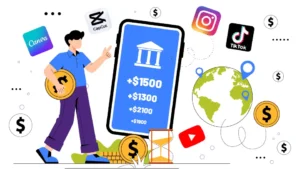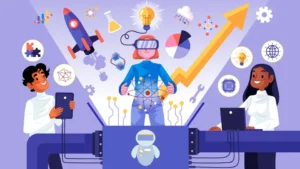Have you ever started a task, only to find yourself checking your phone 10 minutes later… and then wondering where the last hour went?
You’re not alone.
Staying focused is harder than ever but also more valuable than ever. From CEOs to athletes, top performers rely on specific brain hacks to cut through distractions and get things done. However, these techniques aren’t just for the elite, everyone can use them !
Let’s take a closer look at what’s really stealing your focus and what you can do to regain it.
What’s Really Draining Your Focus
The modern world is full of distractions, and many of them are designed that way. Social media, notifications, endless tabs… all of these constantly compete for your attention.
Science explains it clearly:
Dopamine addiction: Every new notification gives you a little reward, keeping your brain hooked on novelty.
Task switching costs: Jumping between tasks doesn’t make you faster, it makes you lose momentum and mental energy. Studies reveal that it takes an average of 23 minutes to fully regain focus after a distraction. That quick ‘2-minute email check’ actually costs your brain much more than just 2 minutes!
Mental fatigue: Your prefrontal cortex, the part of your brain responsible for focus, tires quickly when overloaded.
So instead of blaming yourself, it’s time to understand how your brain works and how to work with it.
Proven Brain Optimization Techniques Backed by Cognitive Science
Once you know what’s draining your focus, the next step is to rebuild it. Fortunately, there are practical, science-backed strategies you can start using right away.
Let’s break down a few techniques that top performers rely on:
1. The Pomodoro Technique
The Pomodoro technique break your work into 25-minute focus blocks, followed by a short 5-minute rest.
This method keeps your mind fresh and your tasks structured. Try apps like Focus Keeper or Pomofocus to keep track easily.
2. “Anchoring” Your Environment
Placing a visual cue in your workspace, like a timer or a “Do Not Disturb” sign, tells your brain it’s time to concentrate. Over time, this helps you enter focus mode faster.
3. Movement Before Mental Work
Even just 5 minutes of light movement before working can improve blood flow to your brain. Take a short walk or do some stretches—it works better than you think.
4. Breathing Techniques for Stress Management and Mental Clarity
Need to reset quickly? Try the 4-7-8 breathing method: inhale for 4 seconds, hold for 7, and exhale for 8. It’s a simple way to calm your nervous system and refocus.
Now that we’ve looked at habits and physical cues, let’s talk about another key factor—what you feed your brain.
Foods and Supplements That Support Focus
You can’t expect your brain to perform at its best if it’s running on junk. Nutrition plays a major role in mental clarity, memory, and energy levels.
Here are some foods that support better focus naturally:
Focus-Boosting Foods:
Blueberries: Packed with antioxidants that support memory
Salmon: Rich in omega-3 fatty acids that keep brain cells healthy
Green tea: The combination of caffeine and L-theanine helps you stay calm and alert
And for those looking for an extra edge, certain natural supplements may help. Just make sure to consult a doctor before adding anything new.
Popular Natural Supplements:
L-Theanine + Caffeine: A popular combo for calm, focused energy.
Rhodiola Rosea: Known to reduce mental fatigue
Omega-3 (DHA): Supports long-term cognitive function
Some top-performing supplements now combine these ingredients into convenient daily gummies or drinks, which are worth exploring if you’re looking to optimize focus safely.
Once your body and brain are well-supported, the next step is to streamline how you work. That’s where technology comes in.
AI Productivity Tools and Digital Wellness Apps for Focus Management
Why rely on willpower alone when artificial intelligence can do the heavy lifting for you?
In recent years, more professionals are turning to smart tools to manage their time and eliminate distractions. These aren’t gimmicks—they’re part of a smarter way to work.
Here’s how some of the best AI-powered focus tools work:
Motion: AI Employees That 10x Your Team’s Output
This intelligent website offers AI-powered productivity suite: AI Projects, AI Tasks, AI Calendar, AI Notes, AI Docs, AI SOPs, AI Search, AI Reports, and more.
Reclaim.ai: AI Calendar App for Individuals, Teams ,and Organizations
Reclaim.ai works quietly in the background to defend your deep work hours, adjusting your schedule when things change.
Freedom: Reclaim Your Focus And Productivity.
It Blocks distracting websites and apps so you stay locked in.
RescueTime: Automatic Productivity and Time Tracker
RescueTime Monitors how you spend time on your devices and gives you feedback—and alerts when you drift off course.
Top performers don’t try to do everything manually. They build systems and delegate the rest, even to machines.
If you want to stay focused with less mental stress, these tools are worth trying.
Final Thoughts: Focus Is the New Superpower
In a fast-moving world full of distractions, the ability to focus is more than just a productivity skill, it’s a competitive advantage.
The good news is that you don’t need to be born with it. Focus is something you can train, build, and automate.
Use what science tells us. Try the tools. Eat for your brain. Breathe. Move. And let AI take some of the pressure off.
Sometimes, staying focused isn’t about trying harder. It’s about working smarter.
FAQs
Q: How long does it take to improve my focus?
A: Many people notice real improvement within 1–2 weeks of practicing Pomodoro sessions and breathwork daily.
Q: Do I need supplements to concentrate better?
A: If you struggle with concentration, some people notice a real difference when taking Omega-3, L-theanine, or Rhodiola, especially when combined with better sleep and consistent routines.
Q: Can AI really help me focus?
A: Yes. Tools like Motion and Reclaim.ai use AI to schedule your day and protect your focus blocks. They’re used by executives, freelancers, and even students to improve mental clarity.
Q: What if I work in a noisy or distracting home?
A: sNoise-canceling headphones and focus music like Brain.fm can help. You can also set visual cues such as a desk sign or a status update to signal that you’re in focus mode.





